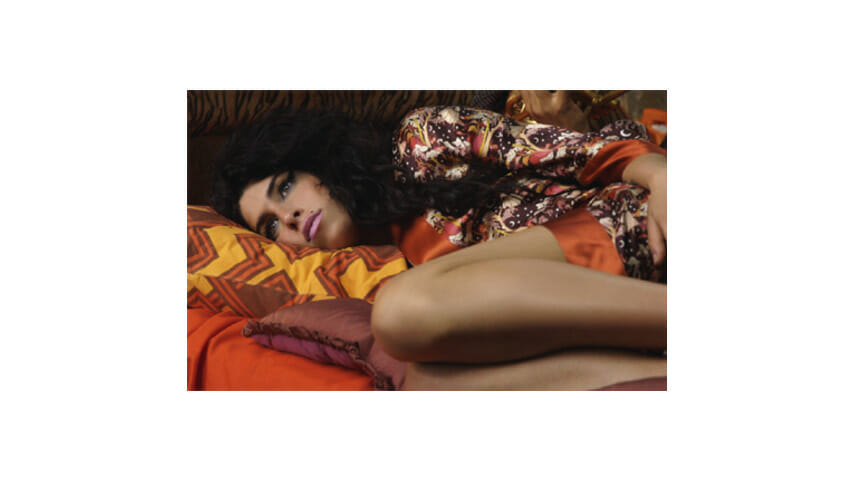
Britain’s street-jazz chanteuse gets back to her parent’s roots, again
Amy Winehouse debuted in 2003 with the thoroughly reprehensible album Frank. Its elevator jazz/hip-hop-lite affectations paid equal and stunning tribute to both Manhattan Transfer and Vanilla Ice; its massive marketing campaign, multiple Mercury Prize nominations and the requisite schoolgirl-ish praise of the English music press failed to fill its aesthetic vacuum. Bewilderingly, a United Kingdom under the sway of Jamie Cullum’s cruise-ship lounge stylings and the souring reputation of Tony Blair went bananas for it.
The follow-up to Frank, Back To Black, should erase most of these troubling memories. BTB finds Winehouse’s formidable vocal potential set against a charmingly synthetic Motown-style backdrop, courtesy of hot producers Salaam Remi and Mark Ronson. The result is very effective, occasionally thrilling, and suits the 23-year-old’s vocal and songwriting capabilities more appropriately than the embarrassing pretensions of her debut.
“Rehab,” the disc’s leadoff track, is one of the most exciting things to come out of England in years. A Martha and the Vandellas-like stomper that quickly went Top 10 in the U.K., it jumps out of the speakers with the immediacy of an early Jackson 5 cut, authoritatively setting the tone for the album. “Me and Mr. Jones” finds Winehouse doing her best Ronettes while still managing to mutter about “fuckery” and a Slick Rick gig. The unfortunately titled “Love Is A Losing Game,” a fine ballad stolen unashamedly from the early Bacharach/David songbook, is delivered with the tender weariness of a singer well beyond Winehouse’s years.
Back To Black raises some questions as to whether Winehouse is actually the person she sings about being. Much has been made of her family’s working-class jazz pedigree and her supposedly excessive boozing, the kind of biographical ingredients traditionally invoked to bestow authenticity. Regardless, the album carries a slight-but-distinct theatrical odor. The songwriting and production, so invitingly nostalgic, are simultaneously contrived, leading a listener to ponder if Winehouse is merely creating a flashy new musical home for a character invented by the tabloids or if she’s creating a truly singular vision.
Witness Smokey Robinson-homage-gone-wrong “Tears Dry Up On Their Own”; she sounds tired of herself by the middle of slurring through another tipsy tale of ill-fated love. Likewise, her insistence on littering BTB‘s sometimes profound lyrics with awkward streetisms might play to her target demographic’s definitions of what passes for poetry, but it pales against the angst so many of Winehouse’s obvious influences were only allowed to imply through masterful phrasing and tone. While she possesses a capable enough voice to carry the day alone, the wince-inducing thuggery merely amplifies the confines of her age and artistic credibility.
Given the pressure she’s likely under to stick with a winning formula, Winehouse deserves plenty of credit for stretching out on the follow-up to her highly successful debut. Back To Black is an unexpected surprise from an artist smart enough to pull the ace from her sleeve before the going got ugly.